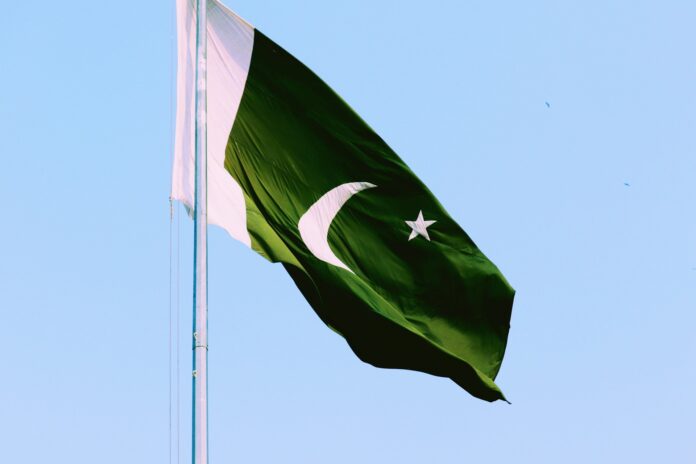The court martial of former ISI chief Faiz Hameed has sparked mixed reactions from Pakistan’s political spectrum, revealing deep-seated tensions and allegations
In a dramatic turn of events, Pakistan’s military has initiated court martial proceedings against former Inter-Services Intelligence (ISI) chief Faiz Hameed. The decision follows allegations that Hameed was involved in the victimization of a private housing society owner, a move the government has praised as a testament to its commitment to upholding the rule of law.
The court martial’s announcement has elicited diverse responses from Pakistani political figures. While the ruling coalition has welcomed the military’s action, viewing it as a necessary step towards accountability, the Pakistan Tehreek-e-Insaf (PTI) party has remained cautious. PTI Chairman Barrister Gohar Ali Khan labelled the matter as an internal military issue, emphasizing that the Pakistan Army is a disciplined institution with established procedures for addressing both active and retired officers.
Embed from Getty ImagesGovernment officials, including Information Minister Attaullah Tarar, Senators Irfan Siddiqui and Afnan, and PPP leader Qamar Zaman Kaira, have openly supported the military’s decision. Tarar described the court martial as a “right decision,” while Senator Siddiqui anticipated that further investigations would reveal Hameed’s alleged political meddling. Siddiqui also recalled claims that Hameed had influenced legislative processes and elections to benefit PTI, citing former PTI founder Imran Khan’s statements on the former spymaster’s involvement.
Rana Sanaullah, a senior PML-N leader, echoed these sentiments, suggesting that Hameed’s arrest stemmed from proven allegations. Sanaullah accused Hameed of orchestrating political interference, including the Faizabad sit-in that paralyzed Islamabad and the controversial raid on the Top City housing scheme in 2017. This raid, allegedly ordered by Hameed, reportedly involved significant theft of cash and gold, further complicating the accusations against him.
PPP leader Qamar Zaman Kaira praised the military’s internal accountability system, noting that the inquiry had uncovered multiple violations by Hameed. He stressed that the decision to court martial a high-ranking officer underscored the gravity of the alleged offences and lauded the Supreme Court’s role in ensuring both the government and military adhere to legal standards.
Defence Minister Khawaja Asif, in a statement on Geo News, suggested that Hameed’s influence extended into political turmoil post-retirement. Asif hinted at Hameed’s possible involvement in the May 9 riots, which erupted nationwide following Imran Khan’s arrest. While Asif refrained from making definitive claims, he noted that the events pointed towards Hameed’s significant role.
Analysis:
Political: The court martial of Faiz Hameed signifies a major political shift in Pakistan, reflecting the government’s attempt to address allegations of abuse of power and political manipulation. The mixed reactions from political parties highlight ongoing tensions and rivalries. The ruling coalition’s support for the military’s decision aims to demonstrate commitment to accountability and legal integrity, potentially reinforcing its position ahead of future elections. In contrast, PTI’s reserved stance reflects its concerns about internal military dynamics and its own historical ties with Hameed.
Social: The court martial and the allegations against Hameed have significant social implications. They underscore the broader issue of accountability within Pakistan’s political and military spheres. The public’s perception of justice and corruption will be influenced by how the court martial unfolds and whether it leads to substantive reforms. Additionally, the focus on high-profile figures like Hameed may impact societal views on transparency and the rule of law, potentially shaping public discourse on governance and institutional integrity.
Racial: While the event does not directly address racial issues, it highlights the broader dynamics of power and authority within Pakistan’s military and political landscape. The investigation into Hameed’s actions may shed light on the intersection of institutional power and governance, contributing to discussions on how elite individuals wield influence and the checks and balances necessary to ensure equitable and just practices.
Gender: The court martial does not explicitly involve gender issues; however, the implications of military and political accountability have indirect effects on gender dynamics within Pakistan. By promoting accountability and addressing high-profile corruption cases, the government could foster an environment that supports broader reforms, including those related to gender equality and representation in governance.
Economic: The economic impact of the court martial is nuanced. The focus on high-level corruption and political interference can influence investor confidence and economic stability. If the court martial leads to significant reforms and improves governance, it could enhance economic prospects by fostering a more transparent and accountable institutional environment. Conversely, prolonged political and legal battles may create uncertainty, potentially affecting economic activities and investment flows.
